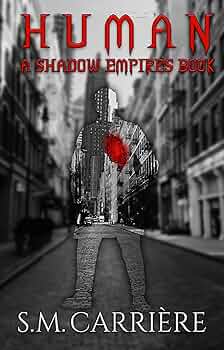Must It Be Your Favourite?

Why hello there!
On my last post, I received a question that I want to take the time to answer fully and so, with the commenter’s permission, I’ll do so here. It’s a great question, but it is also indicative of a broader issue with writing advice that I also want to touch on. But first, the question:
There’s a piece of writing advice that I know is well-meant, but I never know what to think of it: the work you are writing now should be your favorite work yet. Any perspectives on that one?
Why yes, yes I have a perspective on that piece of advice. Primarily, this one:

(As an aside, I’d like to thank you for providing this question. It has unburdened me of the issue of coming up with a topic for today, which was quite the struggle. Thanks!)
Let me explain the only way I know how – with an example from my own experience.
Once upon a time, I wrote a book. Okay, I’ve written several. But hear me out. This book in particular is relevant. The other ones not so. Where was I? Oh, right. I wrote a book. I didn’t want to write it. I hated the idea the moment it popped into my head. I fought that idea for weeks, in fact.
You see, it was a vampire story. And vampire stories were so played out. They were all the same, even when they were trying to be different (like vampires sparkling in the sun, for example). I was so done with vampire stories. There were too many vampire books, few of them good to my mind, and too many vampire shows on television, and the only one of those I actually liked started and ended in the 90s because the lead actor died in a motorcycle accident.

I did not want to write a damned (hah! Accidental pun!) vampire novel.
My brain, however, is an unmitigated arsehole (hard ‘r’ for extra emphasis). It would not let the story die. It did not care about how I felt about vampire stories in general. It didn’t care how often or vehemently I pushed the idea away. The story crept into my bones, whispered in my ear at night, interrupted my workday… I was being driven mad. Did my brain care about any of this? No, no it did not. In fact, it encouraged it.
Finally, I broke. I sat down to write the story. Every time I opened the document, I rolled my eyes to the heavens, cursed the story and my treacherous brain, and wrote. I swore like a sailor the entire time. And still, I wrote. And wrote. And wrote. Until it was at last purged from my mind onto the page, and I could finally get a night’s rest.
I did not like a single moment of it. This story was not, at any point in time, my favourite; neither at the time of writing, nor once it was out of my head.

At this point, I should say that I really like the story now. I think I did vampire stories proud with this one, but I’ll leave that up to the reader to decide. It’s up there, but still not my favourite. Not far from it, though!
Now, this is how it normally is for me when I’m writing. Not the hating every minute of it part. That was reserved only for Human. But normally, the story I’m writing gets into me. It sinks into my bones, makes my teeth hurt, overrides my daily considerations, interrupts my sleep and makes working in the office more difficult than it should be. It’s like an obsession; an addiction.
We’ll ignore the mental health implications of that for now.
So I don’t think the story anyone is writing at any moment in time should be their favourite yet. But there’s an element there that the advice sort-of mentions by proxy. I think the story someone is writing at any given time should be the one they cannot stop thinking about. The one that whispers in their ear, a whisper so insistent it might as well be a scream. Not the one they think their audience will most want or like. Not the one their relative told them they should write. The story that is burrowed in their mind like a memory. I think that as long as that criterion is fulfilled, the writing will go reasonably well, and it will be reasonably well received.
Human, for example, is a favourite according to at least three of my readers (though they’re friends, so I just think they’re being nice).
Now this well-meaning, but not-quite-right advice highlights a problem that I have with writing advice in general, but I think I’ll reserve that for my next post (for two reasons, this post is already quite long, and it spares me having to come up with a topic for next time!).
So, I’ll instead pass this question onto you. Do you think the initial query held sound advice? What has been your experience? I’ll be reading the comments eagerly. For now, however…
Ciao!
When S.M. Carrière isn’t brutally killing your favorite characters, she spends her time teaching martial arts, live streaming video games, and cuddling her cat. In other words, she spends her time teaching others to kill, streaming her digital kills, and a cuddling furry murderer. Her most recent titles include Daughters of Britain, Skylark and Human.
once the writing is done and the story out there, I have favorites, and the ones that are not. But at some point during the writing of every story or book that worked, it became in some sense my favorite, because it was the one consuming me, the one I thought of before any others. That’s the point you describes as “making your teeth hurt,” I imagine.
Interesting. I really cannot claim that Human was my favourite, even though it was the one consuming me while I was writing it. In fact, I resented it a lot. I don’t think that being obsessed with something is the same as it being your favourite thing. But, of course, mileage may vary.
Thank you for taking the time to relate that experience. Before, I’d heard anecdotes about people writing things they didn’t enjoy that were imposed on them by outside situations (protest pieces), or in flame war situations, or simply because someone else was blackmailing or mocking the writer into it. But this is the first time I’ve heard of a “dammit, brain!” book. To know that it can and does happen is… comforting.
The writing advice about the current work being one’s favorite has confused me in the past, since I’ve voluntarily written things I don’t like because I know that doing so will make me a better writer or will develop a skill that will be useful for something in the future. (There’s nothing like writing a few technical manuals for sharpening the keenness of sunny sarcasm put into a paper-changing instruction sheet for public facilities, or for examining simple procedures in such detail as to know exactly how an insect-sized hivemind would go about greasing human-sized tank tread driving sprockets.) And when it comes to writing fiction, I don’t think I’ve ever written something that was either my favorite or painful the whole way through. When suddenly all of my subconscious preparatory details click into configuration, the prose flows like a dream; when I have to write a character whose psychology is repugnant to me, I never want to look at the document again. The favoritism advice seems like it *should* relate. Should enjoyment of the work not push it forward? But it doesn’t. Not always.
So… it has always been a piece of advice that I’ve felt must have a kernel of truth, but is, as you’ve said, “not quite right.” Perhaps that kernel of truth is the driving obsession, the brain’s favorite chew toy. That would make sense.
Thank you for taking the time to address this.
Thank you for asking!
Human is the only ‘damn it, brain!’ book I’ve written, but I’ve had other ‘damn it, brain!’ moments while writing.
I think you hit the nail on the head – the book you should be writing is your brain’s new favourite chew toy.
Sorry, I was trying to synthesize your article for my own internalization, not draw a parallel conclusion; that previous comment probably came out a bit wrong. Was mostly just agreeing with your thoughts.
The more I chew on your perspective, the more I think you have it absolutely right. Your version of the advice is the actual one, the practical one, whereas the original is someone’s ideal…? Or perhaps an awkward way to tell someone not to force “high literature” if that’s not what you want to write? Grr. This is where some context or a proper citation would be nice, because now I could easily see that piece of advice as something offered to a particular person in a particular situation, but that it was overheard by another person who thought it was pithy and decided to propagate it.
Anyway. Yours is definitely the better advice, and it is much appreciated.
No apologies needed!